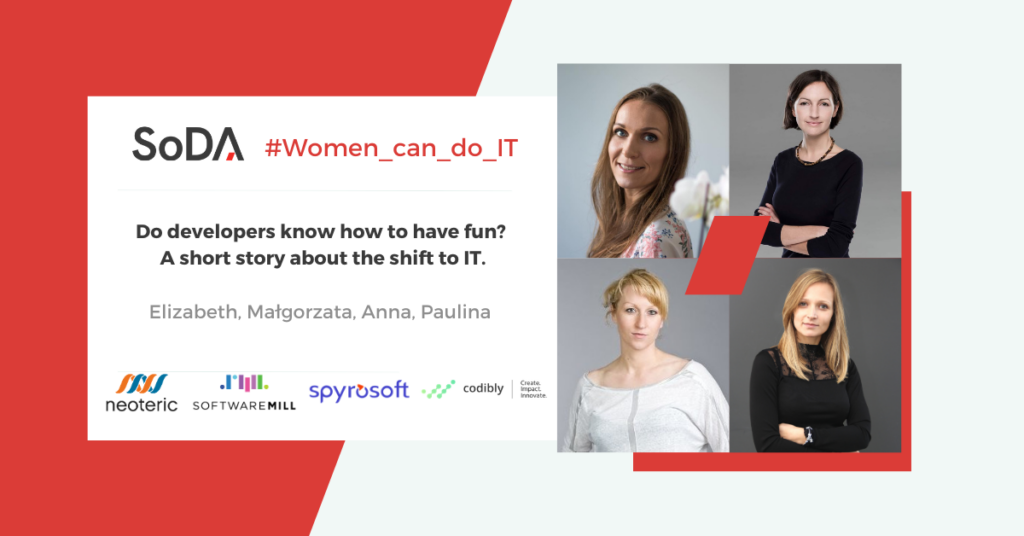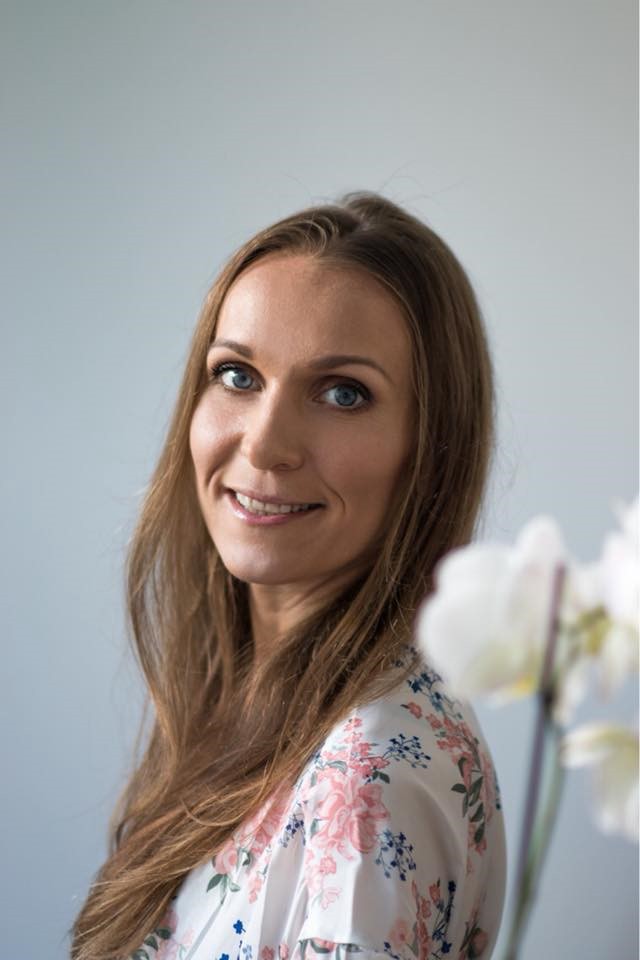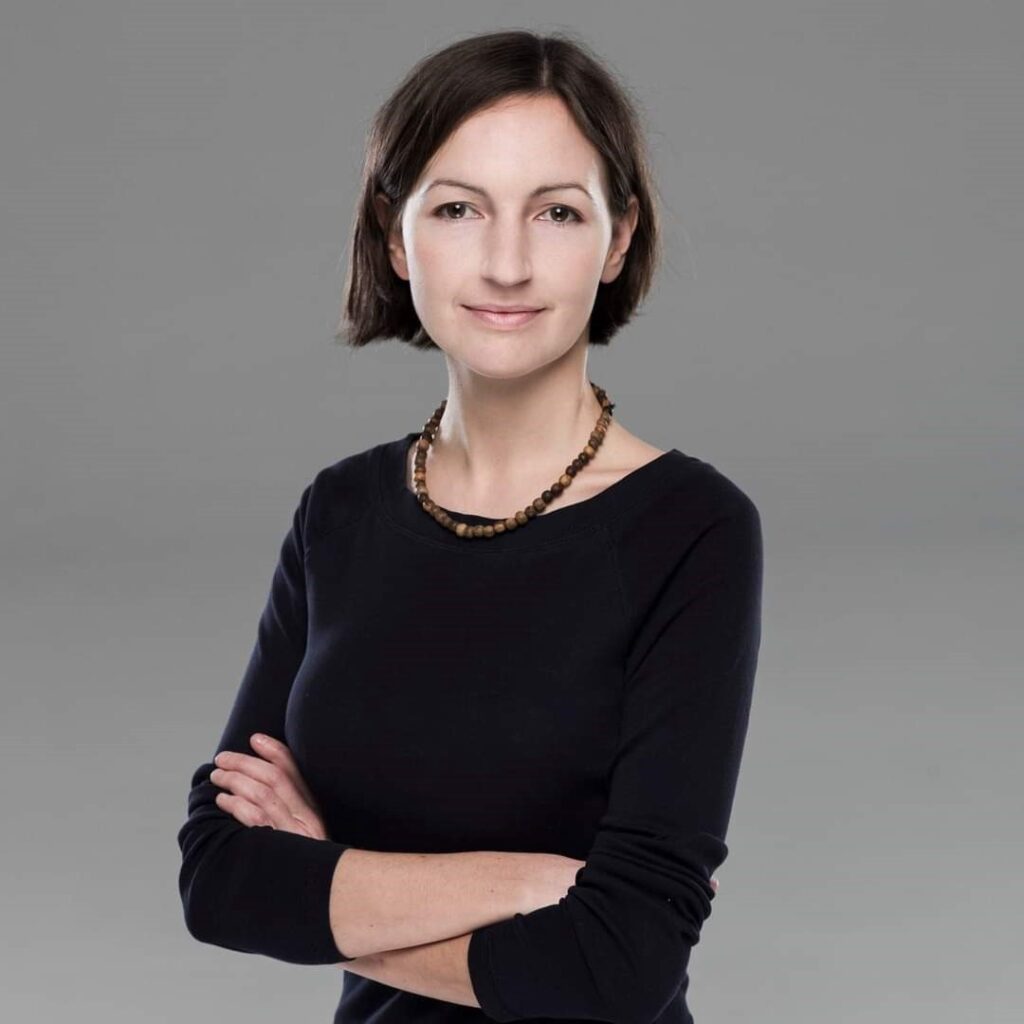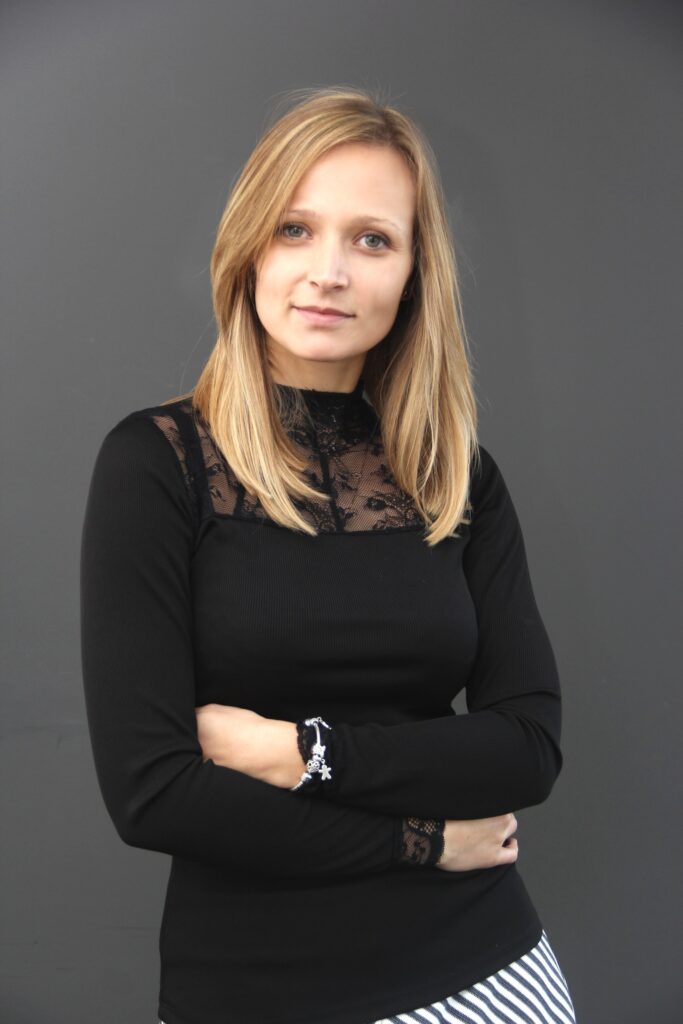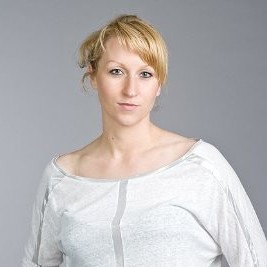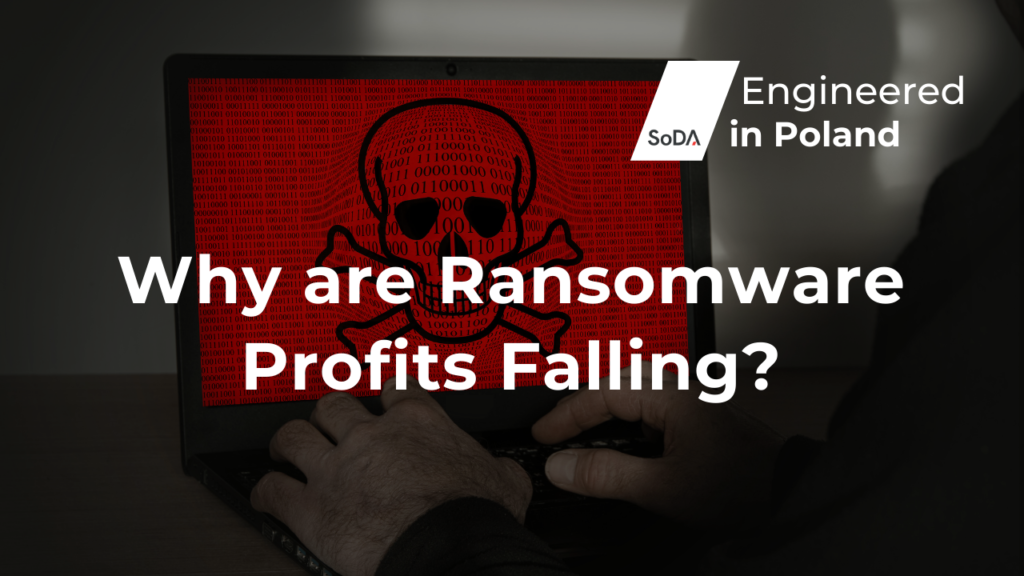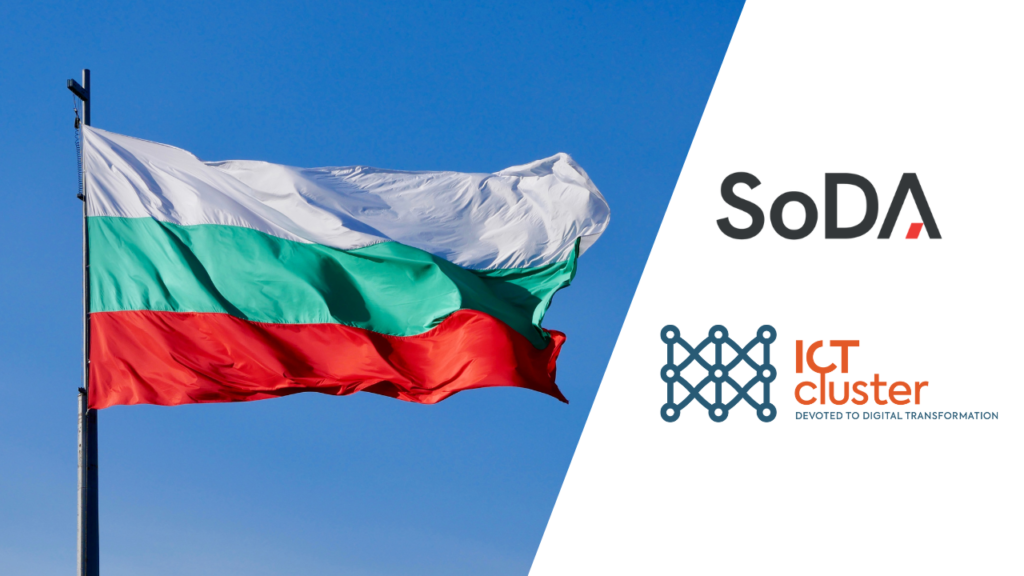Women Can Do IT is a new project of Software Development Association Poland, in which we want to disenchant the IT industry for women and show that it’s an environment with a room for everyone, regardless of their previous experience.
In the next interview in the series, our interviewees are Paulina Jakusiewicz, Head of Administration at Spyrosoft, Elizabeth Sutkowska, Executive Assistant to the CEO at Neoteric and Project Leader at Startup Hansa, Anna Jaroń, Administration Lead and Happiness Officer at Codibly and Małgorzata Grzejszczak, Finance & Administration Manager at SoftwareMill.
Did you start your career in the IT industry? What is your background when it comes to your education and previous career path?
Elizabeth: I lived abroad for over a decade — in Cyprus, the USA, and Italy. I have actually worked in various industries — from a chef’s assistant, through a waitress, a bartender, an Au Pair, to an office manager, project manager, ending with positions such as an international advisor in the education industry.
In January 2019, I started working at Neoteric and this is actually the first IT company that I seriously dealt with. First, I applied for a sales-related position, but my application was rejected. However, I was determined and wrote back to them that I did not agree with their decision and that they should review my test tasks again [laughs]. A month later, they e-mailed me that the CEO [Mateusz Kurleto] was looking for an assistant and that it would be nice to work together.
When it comes to studies, my story is varied here. First, I completed bachelor’s studies in the field of ‘International Relations’ with the specialty of ‘Media and Intercultural Communication’ in Gdańsk. In the last year of my studies, I went to Italy as part of the Erasmus program, and that’s where I finished my last year. I stayed in Italy for another two years, doing my master’s degree at the university in Milan where I graduated from ‘Public and Business Communication’ with the specialty of ‘Marketing and Branding’. Additionally, I graduated from an American university in the field of ‘Business Psychology with Coaching’. Then, I also completed post-graduate studies in ‘Coaching and Talent Management’ at a British university.
Anna: I worked in the fitness industry as an instructor and consultant for seventeen years, I ran classes and helped to manage fitness clubs. At some point, the excess of sports began to negatively affect my health. I moved to customer service at an IT company, and then I ended up in a startup.
I couldn’t find any better. Working on several positions with great responsibility allowed me to gain extensive experience in a short time. After that startup and working in yet another company, I needed new challenges. And this is how I found myself in Codibly. Initially as an Office Manager, and after three months I was promoted to the position of Administration Lead & Happiness Officer.
Małgorzata: I am a master of Polish philology and a landscape architect engineer. I was also doing a PhD in Polish philology which I finished, but unfortunately I never defended my thesis. At some point, I just didn’t care about it anymore [laughs].
When I studied at the university, a colleague sent me an ad published by SoftwareMill stating that they were looking for an executive assistant. I sent my CV. During the job interview, I was given very general tasks, such as settling a delegation or organizing a meeting, we also had a conversation to check my command of English, and finally a face-to-face meeting with two — out of four — company founders. Amazingly, I got the job. They told me that I was the most interesting person because I wrote in my CV that I had been training karate for several years. They said I was a little crazy, so I would fit right in and that maybe I will have enough strength to handle the tasks if I train karate[laughs].
I worked as an executive assistant for a while, but it turned out that we had more and more employees and more and more work. I also gained experience, so a lot of things were transferred to me. So I started to create my department, which right now employs 3 people.
Paulina: I didn’t start my career in IT either. I studied in a humanities field and was still trying my hand at a technical university, but I found that maybe it was not something for me. After graduation, I was looking for a job at least somehow related to the humanities, writing, and working with people, and finally — 6 years ago — I got a job in administration. I started working in the secretary’s office, but I was promoted very quickly. I came to Spyrosoft because someone referred me and the company began to grow rapidly after my arrival, what I really like.
What do you value most in your current role?
Małgorzata: I appreciate a few things in my work, but I think the most important is the full confidence that I have at the moment. I am also responsible for the contact with the customers from the moment the contract is signed. Everyone knows that even if something bad happens, I will react quickly enough for the management board to take appropriate steps.
The ability to work remotely is also nice. You can just go anywhere with a computer, nobody cares whether I am currently in the fjords in Norway or sitting on the beach in Costa Rica. It’s important that my job is done. It also seemed to me that in this completely remote mode these close relationships will start to dissolve, but they do not. Even new people get into it very quickly. I can’t imagine going back to working from the office.
Paulina: What I value most in my current role is my independence in terms of office organization, cooperation with service providers, and the administration department itself. At the beginning of my work, I was given a lot of trust when it came to hiring new people and deciding about changes that I wanted to make regarding the functioning of the office. I was able to create an administration department practically from scratch.
Elizabeth: When it comes to my current position, in retrospect I most value boss’s trust and the space that not only me, but actually everyone has in the company, according to our principle of freedom & responsibility.
I would say that every day something new happens and there is not the same day. I like this dynamic work environment. It gives me the opportunity to learn new things, develop in a new industry, and engage in various projects, such as the Startup Hansa. Owing to that, I get to know the world of startups, not only in Poland, but also abroad. I have always worked on the international market and I am glad that I can continue it while being in Poland.
Anna: What I appreciate the most is that I can rely on my creativity every day. Working in a startup where my tasks were at the crossroads of many areas, I could participate in the improvement of many processes, and these ideas were taken into account by my boss. There is a similar attitude at Codibly. I can take the initiative, talk to management about it, and start acting on it.
I also offer such space to girls from my department. I avoid micromanagement. If your responsibility is to make all the purchases, I don’t care where you order the item from. When I arrive in the office in the morning, I want us to be able to drink good coffee without thinking about who is its supplier. This is what other employees expect, too.
There’s been no mishaps so far, I have confidence in my team.
Your greatest successes in professional IT?
Elizabeth: I would say that each day, every little task completed successfully contributes to the success of the whole organization. This administrative work is immeasurable sometimes. We just make sure that our team’s daily work is as pleasant as possible and each business trip is organized in the best possible way.
Anna: If I said that I have already had my greatest success in IT, I would have to change the industry. I wouldn’t have motivation to come to the company every day. Work is not a sport, there are no championships or spectacular successes here. There are daily duties that I undertake more eagerly because I see the meaning of my work. I can react on a regular basis and I try to act in a way that makes it easier for people to work.
I regard is as a success that in the difficult time of the pandemic and with the challenges of remote work, everyone in the company sees that my team, so far inseparable from the office, is needed and does a great job. Our main task is to ensure that everyone feels safe and that the entire team, although dispersed, functions as one organism.
Małgorzata: This is a difficult question, but I think my success is that half of the company cried when I recently went on a maternity leave [laughs]. It’s very nice that when I came back, on the first Scrum, I heard from a new employee that he had already heard about me. It was incredibly nice.
Paulina: I believe that it was a great success for me to coordinate and open an office for 400 people in a new place and to move employees from three locations practically in one day. Of course, I wouldn’t have done it had it not been for the huge support of my colleagues from the department and other people with whom I worked at the time. The process of arranging the new office itself took several months and everything that happened along the way was a great challenge: project coordination, decisions, purchases, contracts with suppliers and many activities that ordinary employees were sometimes not even aware of. I think back of it fondly and now I miss that atmosphere a bit [laughs].
What surprised you most about working in IT? What differs from popular opinion?
Elizabeth: I have always associated the IT industry with nerds sitting in front of computers all day, who have no social skills [laughs]. When I came to work and started meeting the guys, who constitute about 80% of the staff, it quickly turned out that they had a lot of interesting topics to talk about.
Paulina: I have a lot of friends who work in IT and who break the usual stereotype about IT specialists. Perhaps a few years ago, the guys from the IT industry (because a few years ago they were still mostly men) were in fact quite eccentric, kind of dweebs. However, I think that this stereotype has now been broken and is slowly disappearing.
Małgorzata: In fact, a few things surprised me. First of all, when I came to work, it turned out that almost all of my colleagues had wives and children. This meant that they had had to get out of this basement after all. I also thought that programmers didn’t know how to have fun and we would drink tea at corporate events. I was very surprised when at the first event like this the CEO was swirling on his back on the floor [laughs].
Honestly, I expected administrative work to be just boring. But it is not — the regulations change all the time, and my colleagues bring me a lot of joy when they make grave and always the same mistakes in invoices [laughs].
Anna: Again I have to mention the pandemic. It is a bit of a bitter reflection. We live in large cities, we work in the IT industry. Most likely, our companies did not feel the effects of the crisis. With that luxury, we can’t forget that real life isn’t like that. We work very comfortably, but the IT industry is only a fraction of the professional reality in Poland.
What else are you striving for? What are your career goals?
Małgorzata: At this point, my role has changed a bit. I became a coordinator, once a week I attend a meeting of people responsible for various aspects of our organization. Together, we wonder which direction SoftwareMill should go and what business decisions we should make. We are also working on the vision and mission of the entire company. Usually people from the administration department are not taken into account in such processes and are not decision makers, and here you can say that I’m in such management board of the organization.
Another thing is a series of internal voice projection and content presentation trainings that I will conduct in the near future. I hope they will help the other employees.
Elizabeth: Every day I get to know the IT industry and the world of innovation better and better. I would also like to continue to develop in this industry because it is an interesting and extensive world, and within time I will know in which direction I would like to specialize.
Anna: I do not set myself a specific, big goal. I would like to continue working in this industry because I feel very comfortable in it. It is crucial for me is to keep doing things that make sense and that the people I work with see the value of my work.
Paulina: I would definitely like to move forward and not stop. Perhaps get involved in the development of our offices abroad — in Great Britain and Croatia. It would be fun to go there and have a real impact on how these offices look and work. I also want to refine our Wrocław office, because due to the pandemic, many of our activities have been stopped.
What advice do you have for people who would like to work in IT?
Elizabeth: From my perspective, do not be afraid and be open-minded, keep listening, and ask questions. This is an industry for creative people who like changes.
When it comes to my specific position, organizational skills are the priority, because sometimes you work on one task and suddenly a ‘tsunami’ comes in [laughs]. So, you just have to focus on the most important task at that specific time. Communication, confidentiality, networking, and the ability to negotiate when you need to win something for your people are the key. I would also add a sense of humor and distance to what is happening.
Ania: Working in IT requires consistency and determination at the start. Breaking through is the hardest thing in this industry. If your dream job is not available to you at the moment, don’t give up, go somewhere else, gain experience and come back to IT.
Paulina: I think it’s important to remain flexible and open, no matter what position you start in. When it comes to working in administration, the most important thing is the ability to organize work and develop a certain self-confidence in action.
Małgorzata: You must definitely believe in your own strength and have a lot of self-denial. It is also important to communicate clearly what you expect and what is not ok. Programmers can really listen to such things, they just need to get very clear messages.
It’s also worth being aware that IT sucks you in and it will be hard to work anywhere else [laughs].
